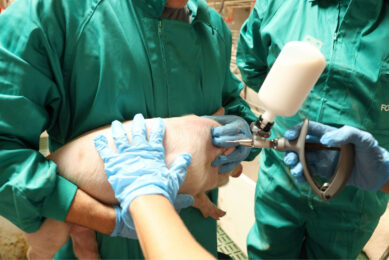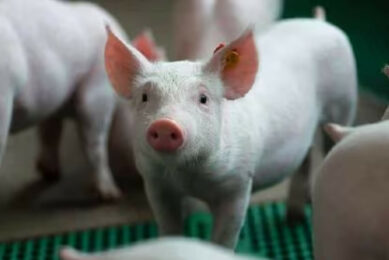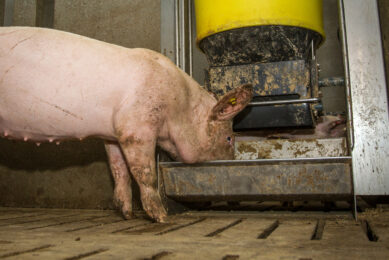Nutrition targeting animal health boosts productivity and sustainability
A gathering of top animal scientists at the InnoVision meeting organised by animal nutrition specialist Nutreco saw promising evidence that there is far greater potential for functional feed ingredients to support animal health, delivering benefits for farms and the environment.
Nutreco organises this biennial meeting to gain new insights based on the open discussion with international experts for its own R&D agenda.
Timed on 21 June 2011 to precede the multi-stakeholder biennial Agri Vision conference (the Netherlands) also organised by Nutreco, InnoVision brought together animal science researchers from Australia, Belgium, Canada, Germany and the Netherlands. Their topic was ‘Nutritional solutions for gut health’.
Clear evidence
Professor Leo den Hartog, Nutreco’s Director R&D and Quality Affairs: “Research into the status of the animal gut and the role of its microbial population is revealing clear evidence of crucial roles in animal health and well being.
“For example, the scientists agreed that natural ingredients can maintain the balance and moderate disruptions of the intestinal microbiota with beneficial effects on the immune system and disease resistance.
“Through this science we can reduce the likelihood of animals developing disease and spreading it to others in the flock or herd, and reduce mild infections that impact welfare and performance without diagnosable symptoms.”
Functional ingredients
“At the previous InnoVision in 2009 we concluded that farm animals were performing 30 to 40 percent below their full genetic potential because of sub-optimal digestion and diseases,” Den Hartog said.
Using functional ingredients in feed and devising formulations to optimise gut health targets both factors, leading to healthier and more robust animals that are better able to fulfil their genetic potential.
“In turn, that means they make more efficient use of feed raw materials, reducing waste and pollution.”
Feeding to genetic potential
Den Hartog said that research in this area will deliver benefits for animals, farmers and the environment. “For example, it will help to reduce the need for antibiotics on farms. Maximising the value we get from feed raw materials by enabling livestock to fulfil their genetic potential will be a vital factor for success in feeding nine billion people in 2050.
“Development and implementation of these technologies require close collaboration between the feed industry, research institutes and universities, the regulatory authorities and other stakeholders,” Den Hartog concluded.











